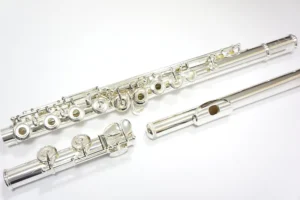Embarking on a musical journey is a thrilling endeavor, and for many aspiring musicians, the keyboard serves as a perfect gateway into the world of melody and harmony. However, with a myriad of options available, selecting the right keyboard for beginners can be a daunting task. In this guide, we’ll navigate the features and considerations to help you find the perfect keyboard that harmonizes with your learning needs.
1. Key Considerations:
- Number of Keys: Keyboards come in various sizes, typically ranging from 25 to 88 keys. For beginners, a standard 61-key keyboard strikes a good balance between functionality and portability.
- Weighted vs. Unweighted Keys: Weighted keys simulate the feel of a traditional piano, offering resistance when pressed. Unweighted keys are lighter and more suitable for beginners focusing on learning the basics.
2. Built-In Sounds and Features:
- Look for keyboards with a variety of built-in sounds (piano, organ, strings) to keep your practice sessions engaging.
- Features such as built-in metronomes, lesson modes, and recording capabilities can enhance your learning experience.
3. Portability:
Consider your lifestyle and whether you’ll need a portable keyboard. Compact, lightweight options with built-in speakers are ideal for those who want to practice on the go.
4. Connectivity:
- USB connectivity allows you to connect your keyboard to a computer for music software or recording purposes.
- MIDI capabilities can be valuable for those looking to explore digital music production.
5. Brand and Model Recommendations:
- Yamaha PSR-E363: A versatile and affordable option with touch-sensitive keys, a wide range of sounds, and built-in lesson features.
- Casio CTK-3500: Known for its user-friendly interface, the CTK-3500 offers a variety of tones and rhythms, making it an excellent choice for beginners.
- Roland GO:KEYS: Compact and portable, this keyboard offers a fun and creative learning experience with a focus on music production.
6. Budget Considerations:
Set a realistic budget based on your commitment to learning. Entry-level keyboards with essential features are often affordable, making them accessible to beginners.
7. Read Reviews and Seek Recommendations:
- Browse online reviews and forums to gain insights from other beginners and experienced players.
- Consult with music teachers or more seasoned musicians for personalized recommendations based on your learning goals.
Conclusion
Choosing the best keyboard for beginners is a personal decision that depends on your preferences, budget, and musical aspirations. By considering factors such as key type, built-in features, portability, and connectivity, you can find a keyboard that not only facilitates your learning journey but also inspires you to explore the vast world of music. Remember, the best keyboard is the one that resonates with your passion and encourages you to keep playing, learning, and discovering the joy of making music.




